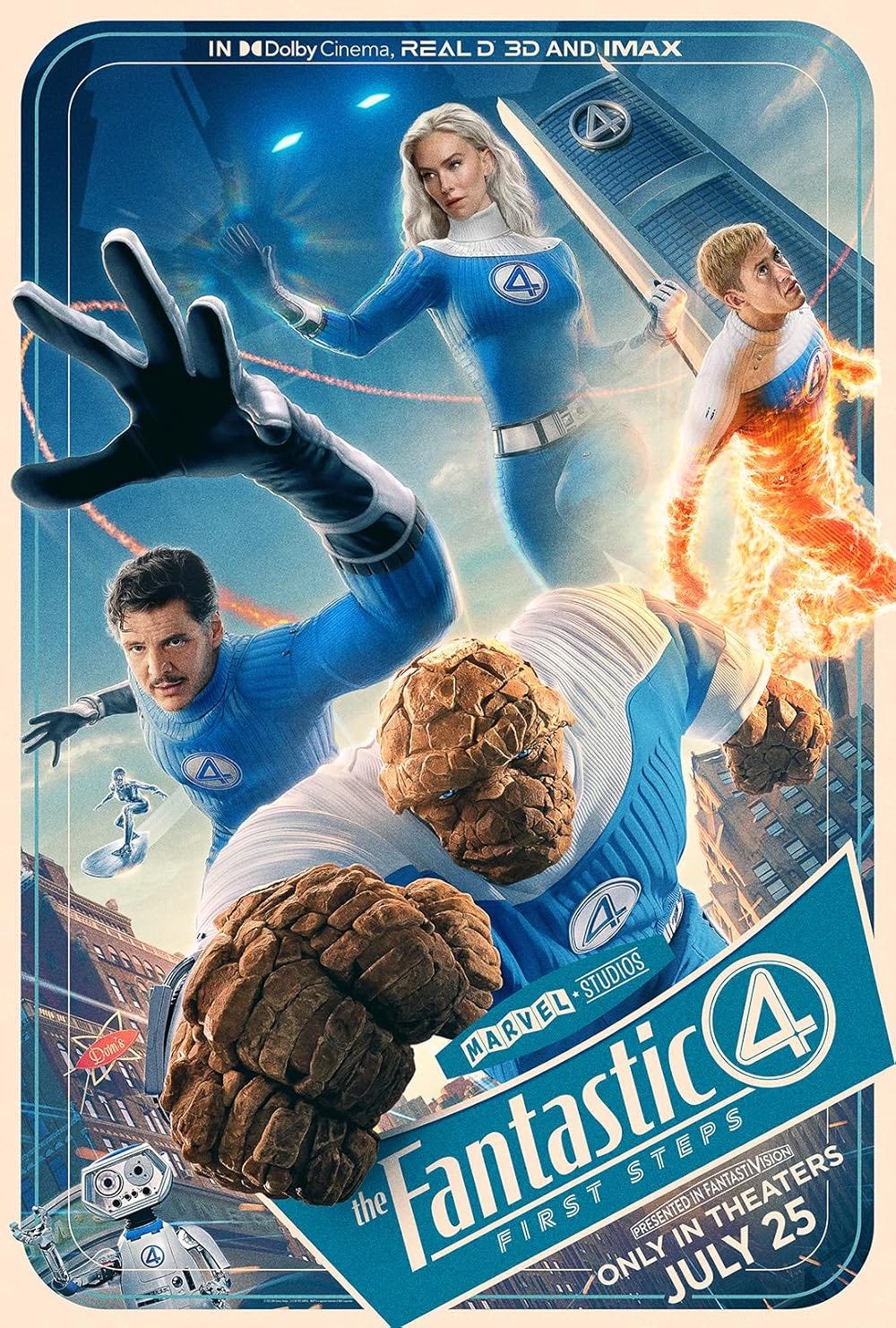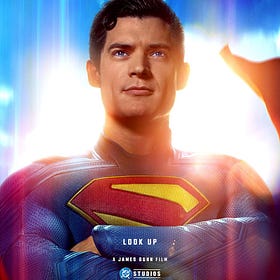In my teens, I would give myself over to movies wholesale. I was on Isla Nublar as those dinosaurs began to escape. I was in New York when the aliens attacked and blew up the Empire State Building. I was on board the dropship as it dropped the troops onto Klendathu. I wanted to see the Matrix for myself.
That all-in immersive viewing of films peaked with the Lord of the Rings trilogy. I’ve continued to love films, of course, but Return of the King is the last time I remember being fully committed, of the outside world disappearing entirely while I watched the Riders of Rohan storm across the plains of Gondor.
There have been films to entirely suck me in, still, but not in the same way. Under the Skin, Civil War, The Banshees of Inisherin and Get Out (to pick four at random) are captivating to the point of not being able to look away, but I’m approaching them from a more intellectual, adult perspective. It’s a slightly different relationship with the material.
In my thirties I thoroughly enjoyed Marvel’s output, which peaked with Avengers: Endgame. Huge, ambitious entertainment. But I always felt that slight bit of distance. I was watching movies, rather than visiting places and living lives. Recapturing that glorious feeling of total surrender to storytelling has proved difficult.
All of which is a long-winded introduction to Fantastic Four: First Steps, a movie that transported me back to my teens in the 90s and the sensation of being pulled through the cinema screen and into the story’s world.
This wasn’t something I had expected. Thunderbolts was entertaining but was tonally all over the place. Captain America: Brave New World is an oddly timid film that establishes an interesting political thriller, then lacks all courage to actually explore the politics. I’ve found myself enjoying comic book movies as a fun way to hang out with my 12 year old son, and probably wouldn’t otherwise bother to see them at the cinema.
Anyway, off we went to see the new Fantastic Four. Not the best seats, being slightly too close to the front, and it turned out that our screen had a faulty speaker that rattled anytime something bassy happened in the soundtrack. Most distracting and not ideal for settling into a film. Which makes it all the more surprising just how much I was sucked in.
Right from the off, the film is a good time. The production design is gorgeous — as Mark Kermode says, even if you have no interest in the story, or Marvel, or comics, or blockbusters generally, it’s worth a watch just for the sets and costumes and props. The story starts quietly and confidently and is entirely comfortable hanging out with the family of Reed Richards and wife Sue Storm, her brother Johnny Storm and best friend Ben Grimm as they do Family Things. Despite the retro-futurist settings, the first half of the film takes its time and has the resolve to be quite mundane.
Despite their powers and elevated status, the film very much grounds the characters as being fairly normal people. The story celebrates science and discovery and demonstrates how powerful those factors can be when matched with kindness. It feels quietly subversive in 2025, which says more about 2025 than the film. It’s old fashioned, in the sense that it presents a bunch of superpowered beings and assumes that they will be good people. There’s no 1980s genre deconstruction going on here.
(I’m not going to get into spoilers in this post, beyond what’s already been in trailers)
Anyway, it was all jolly good fun, up until the halfway point. . There’s an extended sequence that significantly expands the scale of the film and deepens the stakes, in ways I hadn’t quite anticipated. I love it when a story, be it in a book, a movie, a game or anything else, lulls you into a false sense of security, of thinking I know what this is, and then does the unexpected, or takes the more ambitious route.
The sequence perfectly marries the intimate and personal with galactic threat. It’s being epic and huge, as well as small and relatable. It’s a cleverly constructed sequence that left me breathless. I was in. And I remained there until the end credits, entirely committed to the tale being told.
This is one of those films that knows precisely what it wants to do, and then goes and does it. That doesn’t require it to be the best film ever made, but it does give it the opportunity to be the best version of itself. I thought the rather overlooked Prey from a couple of years back was like that: perfectly poised to do exactly what it wanted to do.
Director Matt Shakman previously put together every episode of Marvel’s Wandavision, itself a masterclass in tone shifting and world building while never losing sight of the characters at the centre of it all.
Here’s a specific creative choice I adored: the film’s approach to visual effects is using Guillermo del Toro’s Pacific Rim playbook, and not a little of Kubrick’s 2001 and Nolan’s Interstellar. The camera is grounded and exists physically, even when the film is full CG. Every shot is designed with purpose and as if a camera operator had to get the shot for real. Spaceships are filmed with cameras strapped to their hulls. Giant planet-killer Galactus is shot from street level, or from the rooftops of buildings. The camera only whizzes about more dramatically if it’s following Johnny Storm, as if there’s a superpowered camera operator following along.
It’s weird how rare this approach to VFX is, especially in high concept speculative fiction which really benefits from that grounding. James Cameron has always understood this: the cinematography in the Avatar films feels real, as if they filmed it on location, because most of it is rooted in virtual mocap (shame about the scripts).
Fantastic Four: First Steps is a film in which every single department is working at the top of their game. Costumes, set design, visual effects, Giacchino’s crazy score, the cast, the tight screenplay.
And it comes in under two hours. This on the heels of Superman also being a neat two hours. Are we returning to blockbuster filmmakers knowing how to tell efficient, concise stories? There’s no bloat here, and the film is all the better for it.
I’m still surprised how much I enjoyed Fantastic Four. I’m a sucker for stories about being a dad (or a mum), as long as it isn’t done in a saccharine way. For all its retro optimism, Fantastic Four is all about how difficult it is to be a parent, and how babies are quite annoying and challenging and frustrating. It’s about the fear of change, but going for it anyway.
If I was still 15 and it was the mid-90s, I’d be in cinema heaven. Fantastic Four took me back to that feeling, without simply being a greatest hits nostalgia-fest.




Wonderful. I'm looking toward to it. I'll say that experiencing Prey as overlooked must be a factor of who you were talking to, online and irl. In my world, Prey was huge, the discussion marred only by manosphere fans who missed Swarzeneggar and complained about imaginary bad CGI.
I think it's also nice with Fantastic Four and Superman they have leaned into the (presumed) pop culture knowledge (and assumptions) about the characters, meaning origins can be skipped or recapped and we can get on with the story. Which is also part of what makes them tight two hours.
As I understand the FF origin is recapped briefly for the exposition, but skipping a half hour of Ben being angsty, so we can get right to his banter with Johnny.